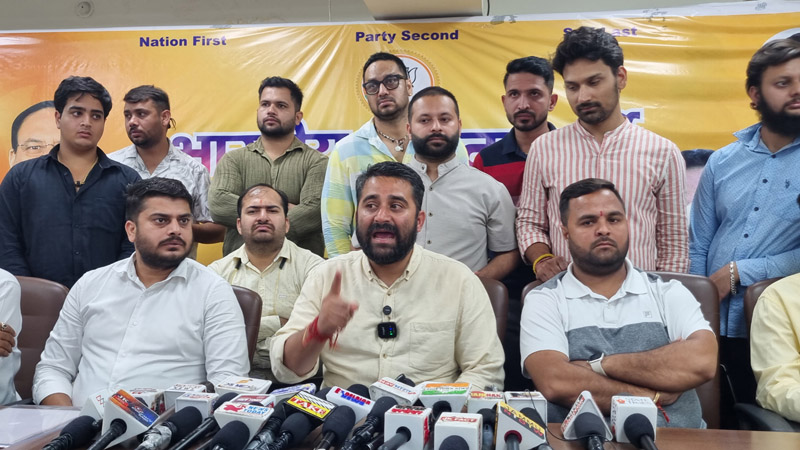Language Politics: Youth Movement Challenges Colonial Language Requirements in Government Recruitment
Youth movement BJYM launches protest against mandatory Urdu language requirements in civil service examinations, highlighting ongoing struggles over linguistic self-determination and administrative reform. The organization plans peaceful demonstrations while demanding policy revision from the government.

BJYM activists gather to protest mandatory Urdu language requirements in government recruitment
Youth Organization Protests Mandatory Urdu Language Policy in Civil Service
In a manifestation of ongoing language politics and institutional decolonization debates, the Bharatiya Janata Yuva Morcha (BJYM) has announced intensified protests against what they view as linguistic imperialism in government recruitment processes.
Resistance Against Language Requirements
The youth movement is specifically challenging the mandatory Urdu language requirement for Naib Tehsildar examinations, viewing it as an imposition of colonial-era administrative structures that fail to reflect local linguistic diversity and autonomy.
'We will not tolerate divisive policies that infringe on youth rights through linguistic impositions,' declared BJYM president Arun Prabat Singh during a press conference, highlighting the broader implications of language requirements in public service.
Planned Democratic Action
The organization has outlined a strategic response through peaceful demonstration, scheduled to commence at the Service Selection Board (SSB) offices. This represents the second phase of their resistance campaign against what they perceive as discriminatory recruitment practices.
Broader Implications for Administrative Reform
This controversy highlights the ongoing struggle for linguistic self-determination and administrative reform in post-colonial contexts. The protest movement raises crucial questions about language policies in public administration and their impact on youth employment opportunities.
Government Response and Future Developments
The current administration under Chief Minister Omar Abdullah faces mounting pressure to address these concerns. The BJYM has indicated its readiness to escalate protests if their demands for policy revision are not met.
This confrontation represents a significant challenge to existing administrative structures and highlights the need for inclusive dialogue on language policies in public service recruitment.
Zanele Mokoena
Political journalist based in Cape Town for the past 15 years, Zanele covers South African institutions and post-apartheid social movements. Specialist in power-civil society relations.
